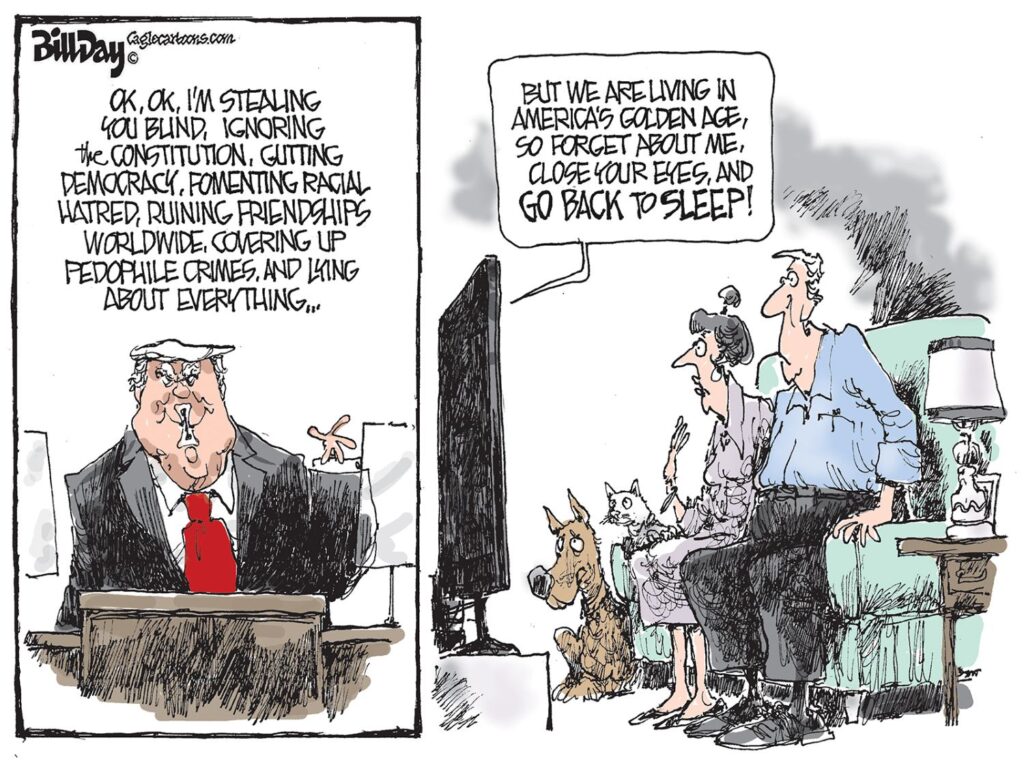Sometimes in government, the biggest changes are symbolized by the smallest things.
It’s not so much Bass Pro Shop in The Pyramid as much as the first mile of city bike lanes. It’s not so much Beale Street Landing as the city’s first skate park at Toby Park. It’s not so much a new Unified Development Code as a South Memphis farmer’s market.
It’s not so much the hyperbole about downtown as it is the now painted traffic signal poles on Main Street. As the venerated Charleston Mayor Joe Riley said, there are no details that are too small in a city that cares about its urban design and quality of life. Those traffic poles were just such a litmus test.
Poled
For years, while the other poles on Main Street were painted in a fresh coat of green paint, the poles at the intersections have remained untouched. Three different city agencies had responsibility for various parts of the poles, and as a result, everyone was in charge and nobody was in charge.
City of Memphis Engineering was in charge of the arms of the poles that held the signal lights. Memphis Light, Gas & Water Division was responsible for the poles themselves. City of Memphis General Services installed some of the poles so it had responsibility. So while the agencies engaged in a tug-of-war over the negligible painting costs, the poles were simply left unpainted.
That all changed in June when Memphis Mayor A C Wharton Jr. said enough is enough and ordered the poles to be painted. It was a seminal month for Wharton as he sent a message to people inside City Hall as clearly as an occupant of the mayor’s office has done in more than decade. In the space of a few days, the mayor’s public criticism of city managers sent ripples through city government and served notice that the turf battles and Lone Ranger style of management during the Herenton Administration were over.
The Message
It began when attorneys refused to release the contract with Bass Pro Shops although it had been signed in a press conference and was clearly a public record. “Apparently, the legal folks don’t get it,” Wharton opined, but when this gaffe was followed up by city engineering failing to include bike lanes in road repaving projects as the boss had promised in his campaign platform, it was too much for Wharton: “I’m more than disappointed. I’ll have to use decent language here. I’m angry about it. If I were out on the street with you, I’d use another word.”
It’s every public manager’s worst nightmare to be criticized by the mayor in print, but coming from the normally unruffled Wharton, the comments ricocheted throughout City Hall. As one management official said: “We got the message. He may have reappointed a lot of Herenton directors and gave them a chance to prove themselves, but he made it pretty clear that we’re in a new day. This is not your grandfather’s City Hall.”
Wharton Administration insiders refer to June as the month that the new mayor “officially” took charge of city government, but he did it by doing more than calling out some members of his management team. It was also a month when he not only dominated the news cycle with announcement after announcement about major projects, making former Mayor Willie W. Herenton look more and more irrelevant as a political figure and undermining his campaign to defeat incumbent Congressman Steve Cohen.
New Direction
Herenton had been derisive for years about Wharton, contending that he was too nice or too worried about his image or that he was the junior mayor. In politics, success is the best revenge, and it may be that June is eventually seen as the month that things fundamentally changed in the body politic in Memphis.
Things also were changing downtown as Wharton and Paul Morris, new executive director of Center City Commission and reportedly Wharton’s candidate for the job, called “for all hands on deck” to get Pinnacle Airlines to move into the foundering One Commerce Square. It was an encouraging sign that the rhetoric about downtown was finally being matched by actions to fight for downtown.
When Wharton’s “kitchen cabinet” of advisers picked up a favorite refrain about the need for a public relations campaign to improve Memphians’ opinions about their hometown, for the first time, it seemed that City Hall was succeeding with the best P.R. of all: it was making good things happen.





I completely agree. The small details are just as important, if not more important. Things like: keeping the grass mowed along the interstate, street streepers cleaning the shoulder on the freeway, etc. Things of that nature that I have witnessed recently that I did not see often under the old mayor.
I appreciate Mayor Wharton’s efforts and look forward to having him for a full term after next year’s elections.
Totally agreed. There may be some that bemoan the time spent to pick the low hanging fruit, but these are exactly the projects that require the least resources- in terms of both time and money- with the greatest potential return. It requires a mayor who is not afraid or above actually conversing with citizens across the city. It requires a mayor who does not simply write off $10,000 dollars but instead says what can we do with $10,000 that will have the greatest impact.
This is a message that has gone largely unmentioned lately and should be shouted from the rooftops but has been actively occurring in our city. Repeat- only louder this time.
Pardon my language, but $&%#! While we are talking about small steps which is certainly valid , there was a big potential misstep made yesterday. I’m not sure this is the blog to post this, but the city council approved the Midtown Overlay “with amendments”. What is the point of having 3 readings on a topic if it can be amended and passed on the 3rd reading? Losses in the name of compromise at the 3rd reading included:
-Removal of language referring to a Midtown design review board.
-Removing insistence on building up to the sidewalk along Union Avenue on either side of Cooper Street.
-Removing insistence on building up to the sidewalk along East Parkway near The Fairground.
-A shorter appeals process for developers that would go directly to the City Council.
All are important, but this last one is the real kicker. It essentially allows a developer to not adhere to the guidelines, be denied approval from the LUCB and take their case straight to the City Council. We all saw how informed and balanced the council’s approach is to urban design. It seems the lightest possible approach with the maximum number of loopholes has been approved for Midtown.
Can we revisit this topic SCM?
it was ‘accepted’ as a “””guide””” to development in that area, at the insistence of holt. you know, kevin hynemanns ‘mom’.
also adopted as a “””guide”””:the Germantown Parkway Plan, the university district plan (both versions), the depot district plan the north memphis district plan, the memphis 2000 plan, the grays creek plan and various smaller area studies not worth mentioning because nobody ever reads them anymore.
not that it makes a difference one way or another when a developer approaches the clownsul, of course.
IO- I know. I just really got my hopes up that perhaps the council would really see the potential for the area. The potential being it is the best candidate area (neighborhood) in the city to create a truly mixed use urban district with a diverse population in terms of culture, ethnicity and income.
IO is exactly right.
Let’s not bring anything of merit before them ever again and instead engage in a campaign to get rid of the clowns in the clownsul. Seems like money better spent.
India